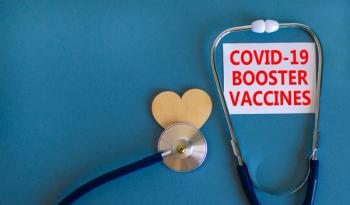
Covid-19 Vaccine Fatigue Becoming More Prominent Than Vaccine Hesitancy
Researchers of the study investigated the determinants of COVID-19 vaccine fatigue because there is much more to learn on the issue, aside all the research on COVID-19 vaccine hesitancy.
Vaccine fatigue is becoming more prominent than hesitancy regarding COVID-19, as of late.
According to a recent
Researchers of the study investigated the determinants of COVID-19 vaccine fatigue because there is much more to learn on the issue, aside all the research on COVID-19 vaccine hesitancy.
Two questions emerged that were significant to address: 1. Should vaccination campaigns adopt similar or different strategies for primary and booster vaccinations? 2. What are the most relevant features and effective interventions that may affect vaccine acceptance in the future?
To answer these questions, researchers created various hypothetical scenarios in an online survey for study participants in Austria and Italy to answer. Respondents were asked to assess in which scenario they would evaluate the vaccination campaign more favorably, then were asked to rate their likelihood to get vaccinated for each scenario on a 0–10 scale. From July 19, 2022 to August 8, 2022, a total of 6,357 respondents participated in the cross-sectional survey.
According to the report, Austria and Italy were experiencing stagnating vaccination rates like other developed nations, the United States and Canada, United Kingdom, and France. By August 2022, 77.1% of Austrians had completed the primary course of vaccinations, and 59.2% had received three doses of the vaccine. In Italy, both primary vaccinations (80.2%) and booster vaccinations (71.5%) were more common.
In the study, participant readiness to get vaccinated was also measured on a scale from 0 to 10. Readiness was shown to be higher in Italy (5.8 ± 2.6) than in Austria (5.3 ± 3.3), averaging across all scenarios in both conjoint experiments. Respondents in both countries reported high levels of pandemic fatigue and showed low to medium levels of trust in parliament and government.
Between both countries, 61% of respondents had already received three or more doses of a COVID-19 vaccine; 14% had received one or two doses; and 25% reported not being vaccinated. The triple-vaccinated group reported the highest likelihood to get vaccinated again across all scenarios, with a mean of 6.6; those with one or two doses showed intermediate likelihood, with a mean of 4.7; and the unvaccinated group was the least likely to declare vaccination readiness under any of the scenarios, with a mean of 3.4.
The triple-vaccinated group in both countries differed from the other two groups, as they were mainly older adults with pre-existing conditions, had higher levels of education and trust in institutions. As expected by researchers, pandemic fatigue was highest among those with one or two vaccinations.
Vaccination status also differed regarding participants underlying attitudes toward COVID-19 vaccination. The unvaccinated group was the most concerned about unforeseen side effects of the vaccine and least convinced of its benefits, whereas the triple-vaccinated group was most convinced of the benefits and least concerned about vaccine safety. Those with one or two vaccine doses were typically in between the unvaccinated and the triple vaccinated and felt the least well informed of all three groups, according to the study.
Regarding the questions on vaccination campaigns and acceptance, data confirmed that communicating expert consensus will likely increase COVID-19 vaccinations. Specifically, the triple vaccinated showed a lower likelihood to get vaccinated when physicians disagreed in the dissensus scenarios as compared to when there was a consensus. Trust in the vaccine was significantly lower in both countries when people were facing expert dissensus. In addition, a lack of expert consensus negatively affected trust in vaccinations among those respondents who had three or more vaccinations.
A high degree of cost sensitivity among the triple vaccinated was also found. Cost-free and easy access to vaccines, as well as creating awareness of when and how to get the vaccine are likely to remain the mainstay for any vaccination campaign to succeed, researchers encouraged.
The study also revealed several other features that could further reinforce vaccination readiness and slow vaccine fatigue: adapted vaccines, medical consensus and celebrity endorsement. Additionally, the results showed campaign messages emphasizing protecting oneself against severe disease, protecting vulnerable peers, protecting the healthcare system, community spirit and self-efficacy resonated well in the triple-vaccinated group. Considering that the triple-vaccinated were the largest group in both countries, the study suggests failing to re-activate and re-mobilize this group is likely to result in booster vaccination rates falling far short of expectations.
According to researchers, possible limitations regarding external validity are to be considered in this study. Although the experiments enable possible impacts of future scenarios to be explored, reading a hypothetical scenario description may differ in considerable ways from experiencing how such a situation plays out in real life.
In addition, considering the group sizes and the size of treatment effects, it’s encouraged vaccination campaigns should not neglect to mobilize the triple vaccinated, as even minimal costs could deter them from translating their positive attitudes toward vaccination into action.
Newsletter
Get the latest industry news, event updates, and more from Managed healthcare Executive.























